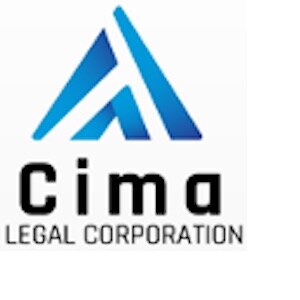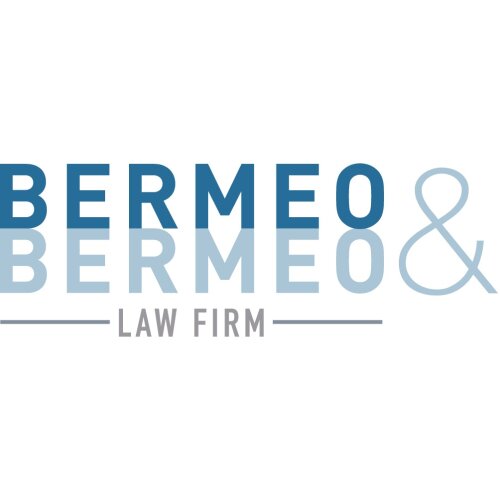Best Nonprofit & Charitable Organizations Lawyers in Quito
Share your needs with us, get contacted by law firms.
Free. Takes 2 min.
List of the best lawyers in Quito, Ecuador
About Nonprofit & Charitable Organizations Law in Quito, Ecuador
Nonprofit and charitable organizations in Quito, Ecuador, play a crucial role in addressing social, cultural, economic, and environmental issues. Governed by specific regulations, these organizations operate without the primary objective of profit, often focusing on public service. In Quito, nonprofits can take various forms, such as foundations, associations, and corporations with social purposes, and they are subject to local laws that dictate their formation, operation, and dissolution. Understanding these laws is vital for legal compliance and effective operation.
Why You May Need a Lawyer
There are several situations where legal advice is essential for those involved in nonprofit and charitable organizations:
- Establishing the organization: Proper legal setup ensures compliance with regulations and facilitates smooth operations.
- Registration and compliance: Ensuring all regulatory requirements are met is crucial to avoid penalties and maintain good standing.
- Tax-exempt status: Navigating the complexities of tax legislation to obtain or maintain exempt status.
- Board governance and liability: Providing guidance on the roles and responsibilities of board members and mitigating potential liabilities.
- Contract negotiations: Drafting and reviewing contracts to protect the organization's interests.
- Employment issues: Ensuring compliance with labor laws and handling disputes.
- Dissolution: Legal guidance is required for orderly dissolution of the organization.
Local Laws Overview
The key aspects of local laws relevant to nonprofit and charitable organizations in Quito include:
- Constitutional and Civil Laws: The Ecuadorian Constitution and Civil Code provide the framework for nonprofit operations.
- Regulation by the Superintendence of Popular and Solidarity Economy (SEPS): Nonprofits may need to comply with SEPS regulations, especially those focused on cooperative activities.
- Tax Legislation: Laws regarding tax obligations and potential exemptions must be navigated carefully.
- Labor Laws: Ecuadorian labor laws apply to all employees, including those in nonprofits.
- Intellectual Property: Protection of the organization's intellectual assets under local laws.
- Data Protection: Adhering to privacy laws regarding handling of constituent and donor information.
Frequently Asked Questions
What is the legal process to start a nonprofit organization in Quito?
The legal process involves drafting bylaws, registering with relevant government bodies, and possibly obtaining a license from the SEPS depending on the nonprofit's activities.
Are there taxes applicable to nonprofit organizations in Ecuador?
Nonprofits may qualify for certain tax exemptions but must comply with detailed reporting requirements. Consultation with a tax expert is recommended.
What are the main responsibilities of board members?
Board members are responsible for governance, strategic direction, oversight of financial resources, and ensuring the organization's mission is fulfilled legally and ethically.
How can a nonprofit ensure compliance with employment laws?
By adhering to Ecuadorian labor laws, drafting clear employment contracts, and consulting with legal professionals when handling disputes.
What should be included in a nonprofit's bylaws?
Bylaws typically include the organization's purpose, governance structure, membership, board roles, meeting protocols, and dissolution procedures.
How can a nonprofit obtain funding?
Funding can be obtained through donations, grants, fundraising events, and partnerships. Compliance with donor stipulations and transparent accounting is essential.
Can a nonprofit engage in commercial activities?
Yes, but these activities should align with the organization's mission and the income must be reinvested into its primary objectives.
What are the reporting requirements for nonprofits in Quito?
Nonprofits must submit annual financial reports and any additional documentation required by governing bodies to maintain their status.
What legal protections are available for nonprofit volunteers?
Volunteers are often protected under specific statutes, and organizations should implement risk management policies to ensure volunteer safety.
How can intellectual property be protected?
Register trademarks, copyrights, and patents related to the organization to safeguard intellectual assets and seek legal counsel for infringement disputes.
Additional Resources
For additional resources and support, consider contacting the following:
- Superintendence of Popular and Solidarity Economy (SEPS): Responsible for overseeing certain nonprofit activities.
- Ministry of Economic and Social Inclusion (MIES): Offers guidance on social initiatives and operations.
- Ecuadorian Institute of Intellectual Property (IEPI): Provides information on protecting intellectual property assets.
- Local law firms specializing in nonprofit law: Offering expert legal assistance and representation when needed.
Next Steps
If you need legal assistance in nonprofit and charitable organizations in Quito, consider the following steps:
- Identify your specific legal needs to better explain them to a professional.
- Consult with a lawyer specializing in nonprofit law in Quito for personalized advice.
- Ensure you have all necessary documentation and an understanding of your organization's current legal status.
- Stay informed about changes in local laws affecting nonprofit operations and compliance requirements.
Lawzana helps you find the best lawyers and law firms in Quito through a curated and pre-screened list of qualified legal professionals. Our platform offers rankings and detailed profiles of attorneys and law firms, allowing you to compare based on practice areas, including Nonprofit & Charitable Organizations, experience, and client feedback.
Each profile includes a description of the firm's areas of practice, client reviews, team members and partners, year of establishment, spoken languages, office locations, contact information, social media presence, and any published articles or resources. Most firms on our platform speak English and are experienced in both local and international legal matters.
Get a quote from top-rated law firms in Quito, Ecuador — quickly, securely, and without unnecessary hassle.
Disclaimer:
The information provided on this page is for general informational purposes only and does not constitute legal advice. While we strive to ensure the accuracy and relevance of the content, legal information may change over time, and interpretations of the law can vary. You should always consult with a qualified legal professional for advice specific to your situation.
We disclaim all liability for actions taken or not taken based on the content of this page. If you believe any information is incorrect or outdated, please contact us, and we will review and update it where appropriate.















